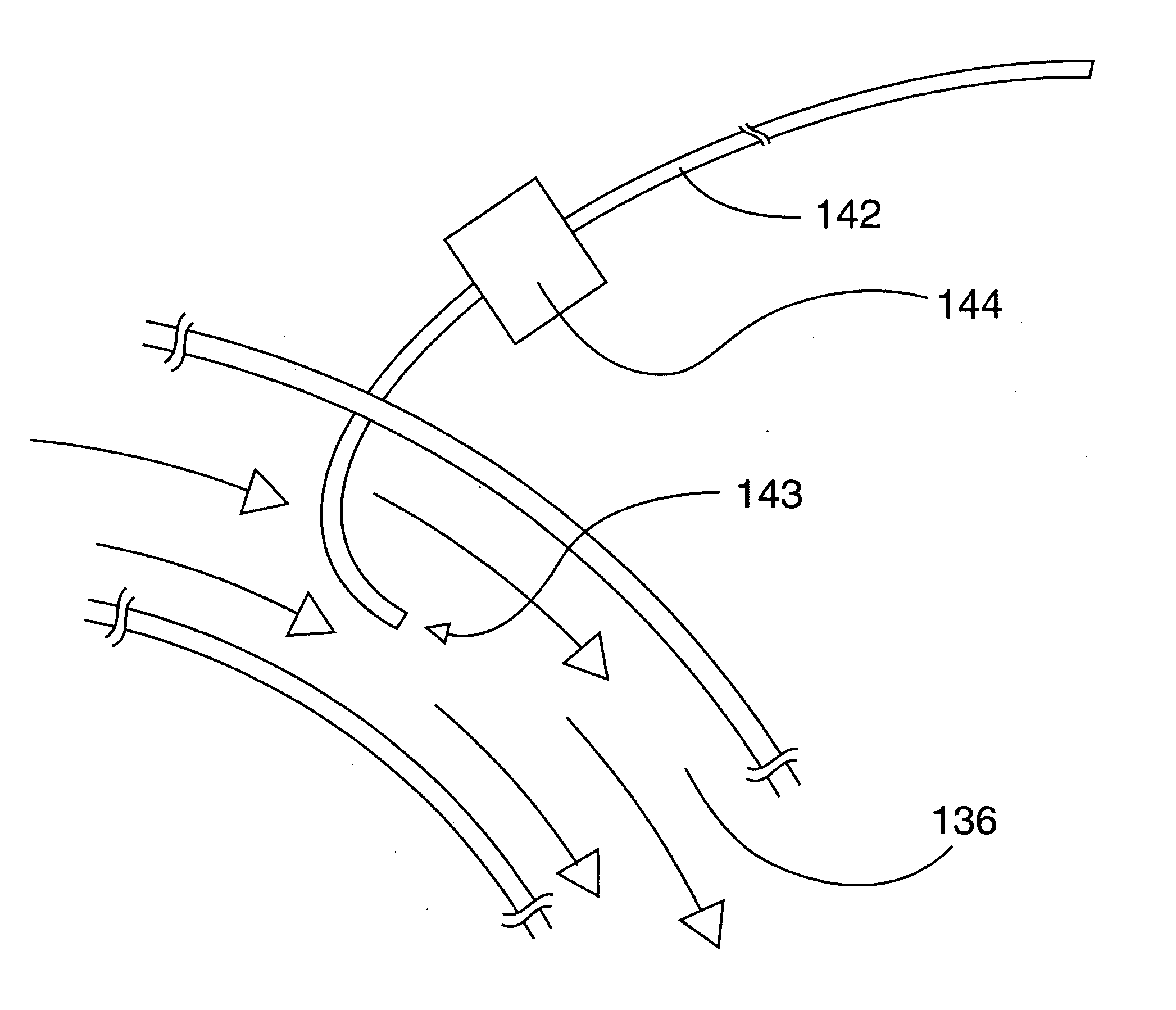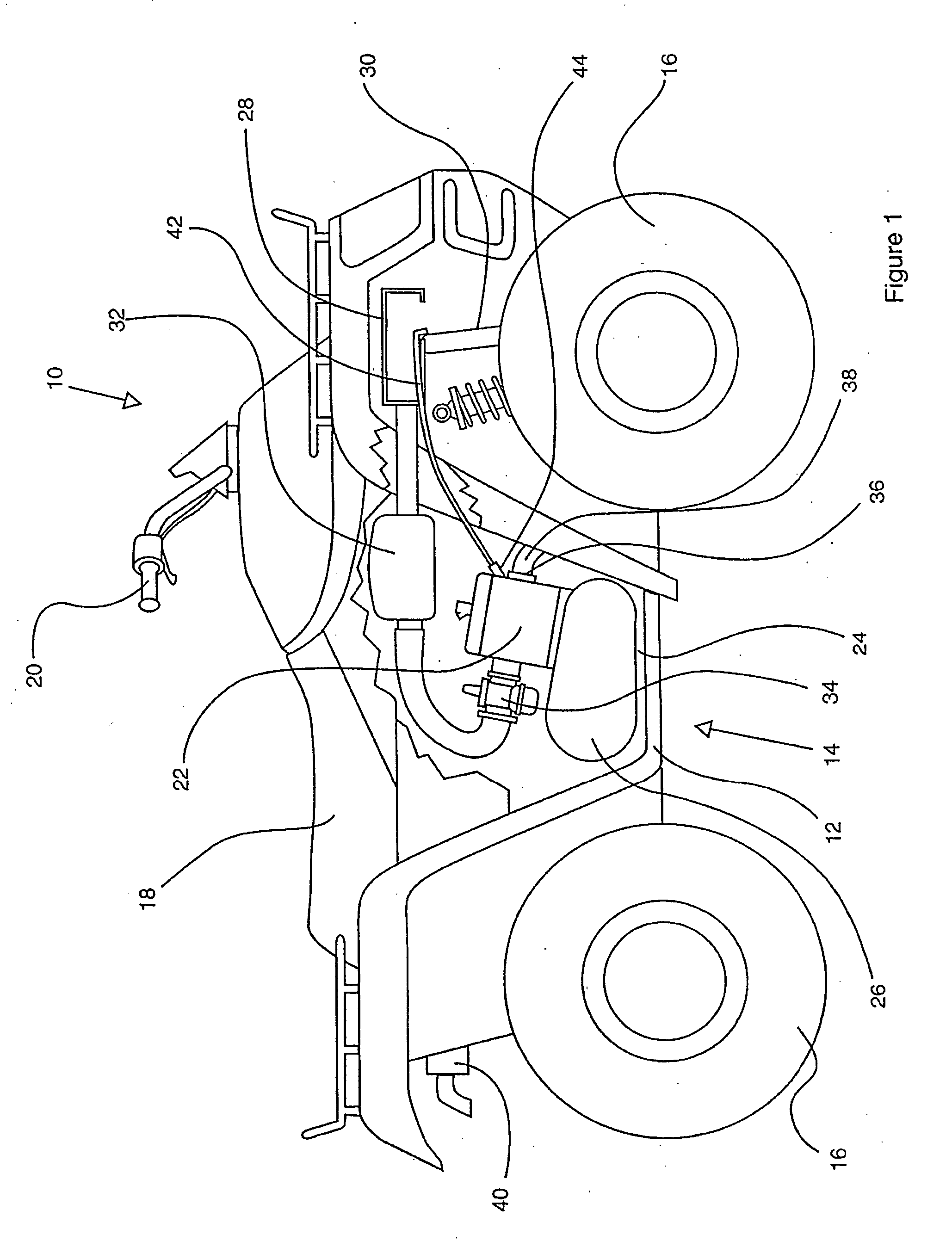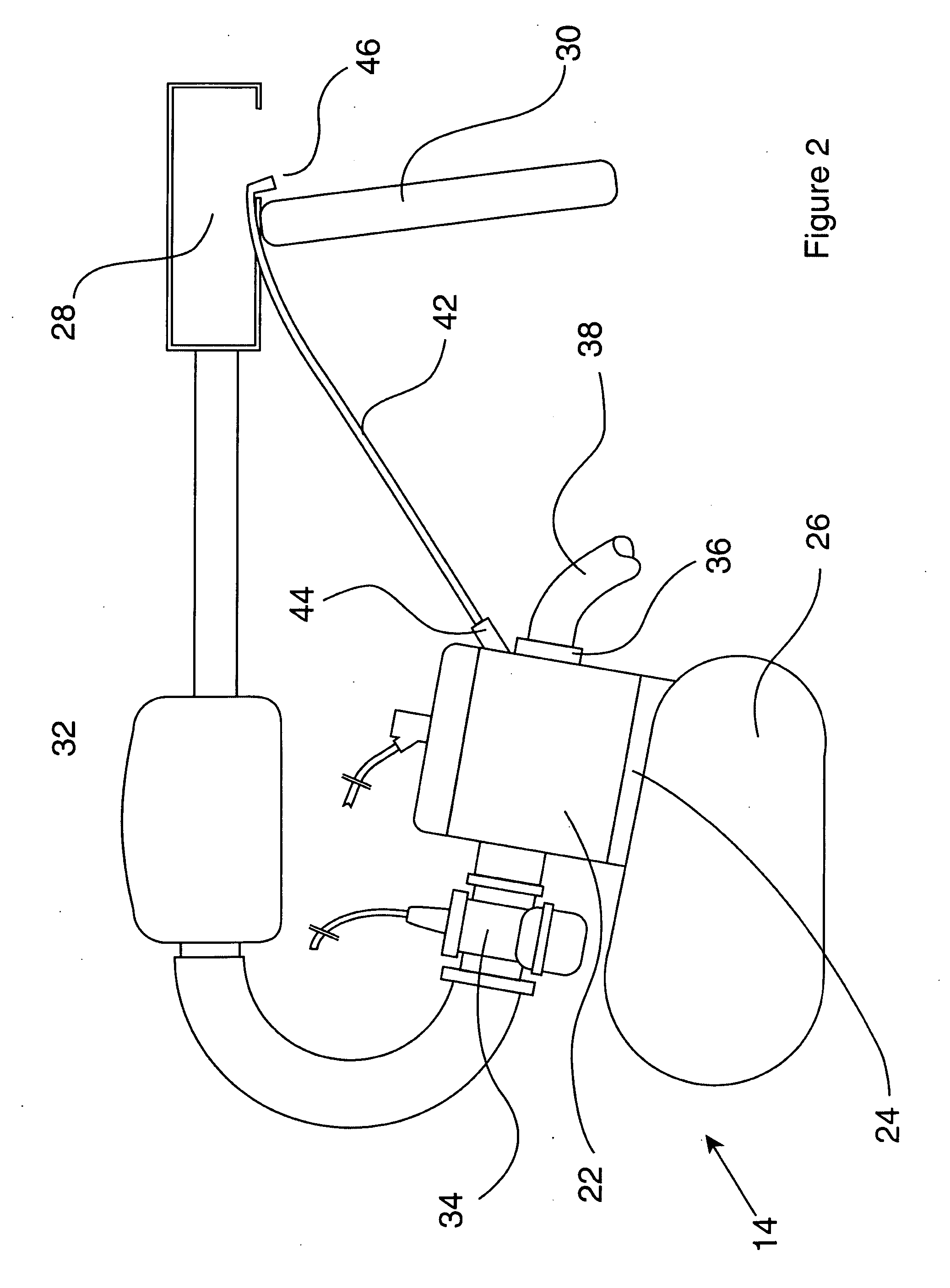Secondary air supply system for internal combustion engine
- Summary
- Abstract
- Description
- Claims
- Application Information
AI Technical Summary
Benefits of technology
Problems solved by technology
Method used
Image
Examples
Embodiment Construction
[0019] The present invention is ideally suited for motor vehicles such as all-terrain vehicles (ATVs) as illustrated in FIG. 1 with ATV 10. The invention, however, may be used with any internal combustion engine where cleaner emissions are desired.
[0020] All-terrain vehicle 10 includes a frame 12 holding an engine 14, wheels 16, seat 18, and handlebars 20. A conventional ATV arrangement is thus provided and used as an example herein of how the present invention may be situated for use in a vehicle application.
[0021] Engine 14 includes at least one cylinder 22, a crankcase 24, and a clutch compartment 26. Cylinder 22 is generally positioned atop crankcase 24. However, in alternate embodiments, multiple cylinders may be employed in various arrangements with crankcase 24.
[0022] The air intake system of engine 14 as shown in FIGS. 1 and 2 includes an air intake plenum 28 at the forward end of the vehicle. Plenum 28 includes an air inlet in front of a radiator 30. The air inlet of ple...
PUM
 Login to View More
Login to View More Abstract
Description
Claims
Application Information
 Login to View More
Login to View More - R&D
- Intellectual Property
- Life Sciences
- Materials
- Tech Scout
- Unparalleled Data Quality
- Higher Quality Content
- 60% Fewer Hallucinations
Browse by: Latest US Patents, China's latest patents, Technical Efficacy Thesaurus, Application Domain, Technology Topic, Popular Technical Reports.
© 2025 PatSnap. All rights reserved.Legal|Privacy policy|Modern Slavery Act Transparency Statement|Sitemap|About US| Contact US: help@patsnap.com



